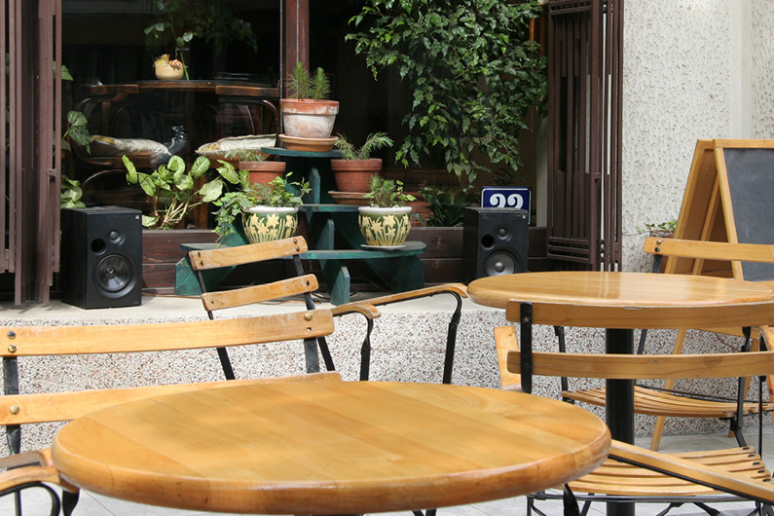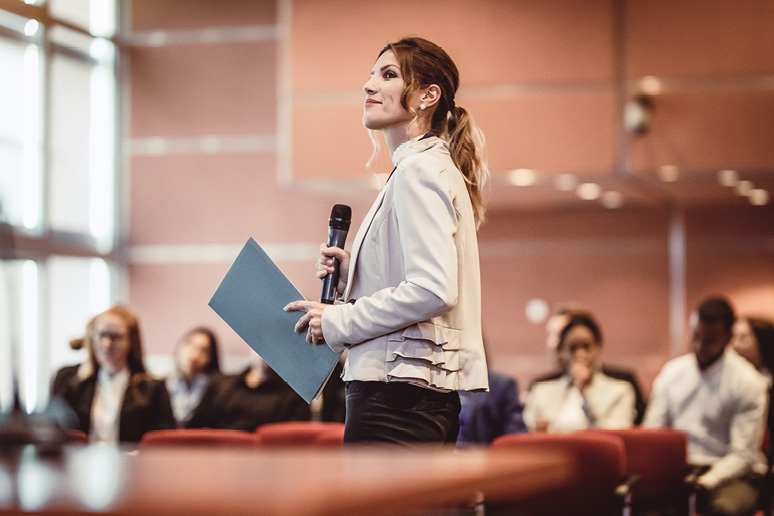When it comes to running your small business, there are no shortage of problems that can become grounds for a potential lawsuit. If you compensate your employees fairly and ensure safe premises, you may assume you’re in the clear. But your business may still be vulnerable in ways that are harder to anticipate. One such overlooked pitfall is the failure to obtain a public performance license.
In December, Sand Creek Lounge, a karaoke bar in Aurora, CO, was sued by several music companies for “unauthorized public performance of musical compositions.” The bar was hosting karaoke nights along with DJ sets and dancing. One of four major performing rights organizations, Broadcast Music, Inc. (BMI), contacted the bar’s owner 50 times to obtain a public performance license to play music before it brought down the lawsuit, which could potentially make the bar liable to tens of thousands of dollars in fines. Sand Creek Lounge wasn’t the first establishment to face steep fines for playing music without proper authorization; Ed's Hurricane Lounge in Tulsa, Oklahoma, faced similar charges in November of 2018.
Dealing with copyright infringement lawsuits can be an expensive and time-consuming process. Business owners should understand their rights and responsibilities regarding copyrighted material to avoid getting sued. If you run a business and play music on the premises, the advice of a qualified local attorney can keep you protected from unexpected legal action.
What is covered by copyright?
As outlined in title 17 of the U.S. Code, copyright covers original authorship of “literary works; musical works, including any accompanying words; dramatic works, including any accompanying music; pantomimes and choreographic works; pictorial, graphic, and sculptural works; motion pictures and other audiovisual works; sound records; and architectural works.” Copyright holders have the right to authorize the use of their material including the performance of “the copyrighted work publicly by means of a digital audio transmission.”
Unlike laws that vary by jurisdiction, copyright is a federal law that preempts state laws, except in a few tangential situations. Copyright law is wide reaching and protects many works throughout the United States. According to the United States Copyright Office Fiscal 2017 Annual Report, more than 450,000 claims for registration were made in 2017 alone, and the office collected nearly $220 million in royalty fees.
Do I need a public performance license to play music for my business?
Possibly, yes.
While a small business exemption exists within copyright law, it comes with many stipulations, including square footage and the number of loudspeakers on the premises. Meaning, if your business has more than a radio playing (like a designated playlist, or a karaoke night) you may be in violation. According to Susan Kornfield, an intellectual property attorney at Bodman, “The copyright act ended up being a compromise for mom-and-pop stores, where [the music] is pretty much somebody playing the radio.”
A business may be exempt from copyright rules if the establishment plays music from the radio or television, is under 2,000 square feet, and doesn’t serve food or drink; or if it serves food or drink and is under 3,750 square feet. Other stipulations prohibit having more than six speakers in the space and not more than four speakers in a single location.
Businesses that do not meet these parameters may need to purchase a public performance license. Businesses that fall under the square footage or speaker allowances need licenses if they want to have live performances, play CDs, use streaming services or jukeboxes and other types of audio performances. There are licenses for one evening or a weekend for special events, like a nonprofit’s charity gala.
There are further considerations when it comes to licensing. Kornfield points out that in the case of a charity gala, the nonprofit may not be the one responsible for purchasing the license. The venue, such as the hotel or event space, should have the license. However, if the charity is hosting the event in their own space, then they would need to purchase the license.
How do I get a public performance license?
Licenses can be purchased from BMI, American Society of Composers, Authors, and Publishers (ASCAP), and Society of European Stage Authors and Composers (SESAC). However, Brett August of Pattishall, McAuliffe, Newbury, Hilliard & Geraldson LLP points out that each company represents different artists so licenses may be needed from all of them.
According to the American Society of Composers, Authors and Publishers (ASCAP), the cost of a license will vary. “The annual rate depends on the type of business. Generally, rates are based on the manner in which music is performed (live, recorded, or audio only or audio/visual) and the size of the establishment or potential audience for the music. For example, rates for restaurants, nightclubs, bars, and similar establishments depend on whether the music is live or recorded, whether it's audio only or audio visual, the number of nights per week music is offered, whether admission is charged, and several other factors.”
Finally, there is a special license for jukeboxes through the Jukebox License Office that gets access to music from all three organizations.
What are the penalties?
Infringement can result in statutory damages, or damages stipulated by the copyright statutes, and possibly the legal fees of the opposing side. However, Kornfield points out that these companies generally do not jump to a lawsuit initially; they will inform the parties involved about infringement to get them to comply with the law. With the Sand Creek Lounge, the licensing companies reached out 50 times before the lawsuit.
What benefits do copyright laws and these licenses give?
Copyrights are a benefit to creators and society at large. With copyright, creators can potentially earn royalties for their creations. “The concept that people have the right to proceeds of their original creations is at the root of the copyright,” says August. Fair use is an important part of copyright law and can be used as a defense but not likely in situations involving businesses playing music to their patrons.
Kornfield adds that copyright law “exists to give public access to more creative content. We do that by giving writers and authors benefits for a certain amount of time but they don’t have exclusive rights.” Kornfield further points out that these large licensing companies help composers and other creators obtain the royalties that they are entitled to. “Small composers who do not have the ability to enforce their copyright, those composers sign up with ASCAP and BMI,” where they can share money from licensing fees with the composers.
When should I get a lawyer?
If you’re playing music without a license in a venue that doesn’t qualify for the exceptions listed above, speak to an attorney about going through the proper channels. Do not wait until you receive a cease and desist letter from a licensing company about copyright infringement. If you are unsure whether you qualify for the small business exemption, a copyright attorney may be able to assist you further.
 By Elisa Shoenberger,
By Elisa Shoenberger, 

